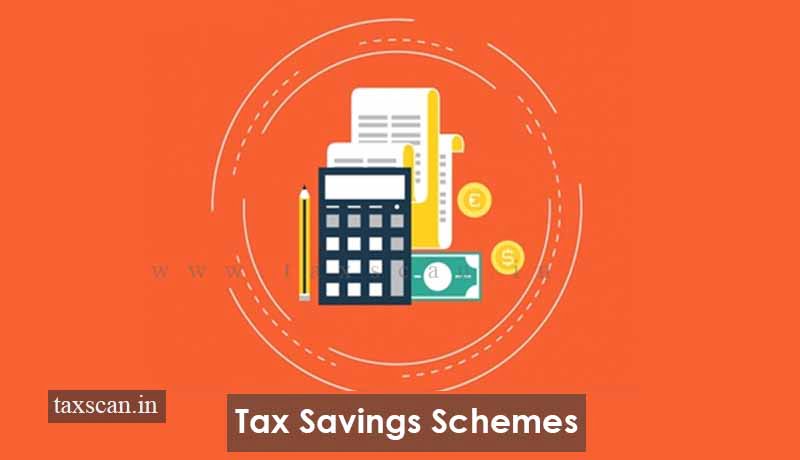Looking for Tax Savings Schemes this Year? Here They Are..

This is the time most of the taxpayers are looking for suitable tax savings schemes to calculate their tax liabilities and claims which can be made during Income Tax Return (ITR) filing.
While the government does take taxes from your income and income from other sources, it also gives the benefit to reduce those taxes by filing a few forms and claim a certain sum on loans or investments. To avoid last-minute tax planning and to gain more benefits, the best time to plan is the beginning of the fiscal year.
The following are popular schemes you can opt for Next Year,
- Public Provident Fund Account: Interest earned on PPF account is completely exempted from income tax under section 10(11) of the Income Tax Act. Annual contribution up to Rs. 1,50,000/- is exempt from income tax under Section 80C. Deduction under Section 80C is available even if the contribution is made in the PPF account of minor/major children or of the spouse.
- NSC VIII Issue: Amount deposited in NSC VIII issue is eligible for deduction under Section 80C of Income Tax Act, 1961 up to a maximum limit of Rs. 1,50,000/-. Interest accrued during the year (except for the last year) shall be deemed to be reinvested and shall also qualify for deduction under Section 80C.
- Bank Term Deposit Scheme: Investment can be made for a minimum sum of Rs. 100 or in multiples thereof subject to a maximum of Rs. 1,50,000/- during a financial year. The amount so deposited will be eligible for deduction under Section 80C of Income Tax Act, 1961 upto a maximum limit of Rs. 1,50,000/-. In case of joint holding, the deduction under Section 80C shall be available to the first holder.
- National Savings Time Deposits: Amount invested in 5-year time deposit is exempted under Section 80C of Income Tax Act, 1961 upto a maximum limit of Rs. 1,50,000/-. In case of joint holding, the deduction under Section 80C shall be available to the first holder. No TDS required on interest or amount is withdrawn.
- Sukanya Samriddhi Account: Account can be opened by the natural or legal guardian in the name of the girl child from her birth till she turns 10. A depositor may open and operate only one account in the name of the girl child under these rules. Accounts may be opened for a maximum of two girl children in a family. The amount so invested is eligible for deduction under Section 80C of Income Tax Act, 1961 up to Rs. 1,50,000/-.
- Senior Citizen Saving Scheme: Deposit should be made in multiples of Rs. 1000/- subject to a maximum of Rs. 15,00,000/-. The amount deposited will be eligible for deduction under Section 80C of Income Tax Act, 1961 up to Rs. 1,50,000/-. No TDS on furnishing a declaration in Form 15H/15G or a certificate for lower deduction or no deduction of TDS from the Assessing Officer.
- Mediclaim: Deduction allowed for medical insurance premium paid by an assessee on self, spouse and dependent children up to a maximum of Rs. 25,000/- [Rs. 50,000 in case any person insured is a resident senior citizen].
- Rebate U/s. 87A: If the income is up to Rs. 3,50,000/-, Rebate Under Section 87A is allowable on the amount of tax up to Rs. 2,500.
- Section 80TTA: Deduction under Section 80TTA can be availed on Interest from saving accounts [in bank/post office] up to a maximum of Rs. 10,000/- [except in the case of Senior Citizens].
- Section 80TTB: Senior Citizens can avail deduction under Section 80TTB for interest from bank/post office deposits [including fixed, recurring and saving] up to a maximum of Rs. 50,000/-.
- The benefit of basic exemption limit Rs. 2,50,000 [3lakh for resident senior citizen and 5lakh for resident very senior citizen] should be availed by making maximum of family members as assesses.
BUDGET HIGHLIGHTS
Individual taxpayers having taxable annual income up to Rs. 5 lakh will get a full tax rebate and therefore will not be required to pay any income tax. As a result, even persons having gross income up to Rs. 6.5 lakh may not be required to pay any income tax if they make investments in provident funds, specified savings, insurance etc.
In fact, with additional deductions such as interest on a home loan up to Rs. 2lakh, interest on education loans, NPS scheme contributions, medical insurance, medical expenditure on senior citizens etc, persons having even higher income will not have to pay any tax.
The standard deduction for salaried employees has been raised from Rs. 40,000/- to Rs. 50,000/-
TDS threshold on interest on bank and post office deposits raised from Rs. 10,000/- to Rs. 40,000/-
TDS threshold on rental income increased from Rs. 1.8 lakh to Rs. 2.4 lakh
The Finance Bill, 2019 has proposed to extend the exemption for the investment made, by way of purchase or construction, in two residential houses provided the number of capital gains does not exceed Rs 2 crore. The assessee can exercise this option only once in a lifetime.


